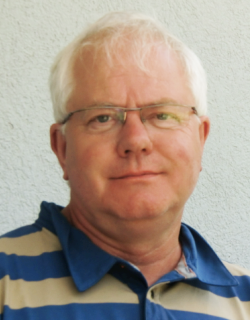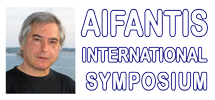| Symposium | |
|
|
|
|
| Venue | |
|
|
|
|
|
| Information | |
|
|
|
|
|
|
|
| Sponsorship | |
|
|
| Submission | |
|
|
| Program | |
|
|
|
|
|
| Registration | |
|
| Instructions | |
|
|
|
|
|
|
| Post Symposium | |
|
|
|
| Previous Events | |
|
|
|
|
|
|
PLENARY LECTURES AND VIP GUESTS
 |
Jean-Marie Dubois
Institut Jean Lamour
The Science Of Surfaces: From Atoms And Electrons To Money Savings
[]
Back to Plenary Lectures »
|
Abstract:
It is now well established that many phenomena, which take place at the surface of materials, are able to generate either substantial profits or cause significant losses of energy and therefore money. Examples are, in the first case, catalysis that enables, selects and improves the efficiency of chemical processes and, in the second case, friction which for instance gives rise to about half the energy losses in a car engine at the segments-piston contact points. Many more examples could be listed in very different areas of technological relevance: optical properties, adhesion, corrosion, etc.
The talk will address this field, yet restricting the scope of the conference – in the interest of time – to a selection of studies taken from the works of the author and his colleagues at Institut Jean Lamour in Nancy, France. Special focus will be placed onto complex metallic alloys (CMAs), which comprise a large number of crystalline and quasiperiodic compounds made of two or more metals and which exhibit interesting catalytic, adhesion and friction properties. The talk will show to which extent fundamental studies at the nanoscale, in ultra-high vacuum, and macroscopic experiments in ambient air may inform us about few sustainable application niches as listed above. The lecture will begin with some insight into the complexity of specific intermetallics. Attention will then be paid to salient features of the surface crystallography of these compounds and their electronic structure in relation with catalytic properties. Friction will then be examined, both at the nanoscale and on macroscopic length scales. We will end up with some results about wetting and adhesion. These pieces of information will find an echo in few of the talks that will be delivered at the 1st symposium about the Physics of Surfaces and Interfaces during this 2015 SIPS meeting.
|
|
|
|








